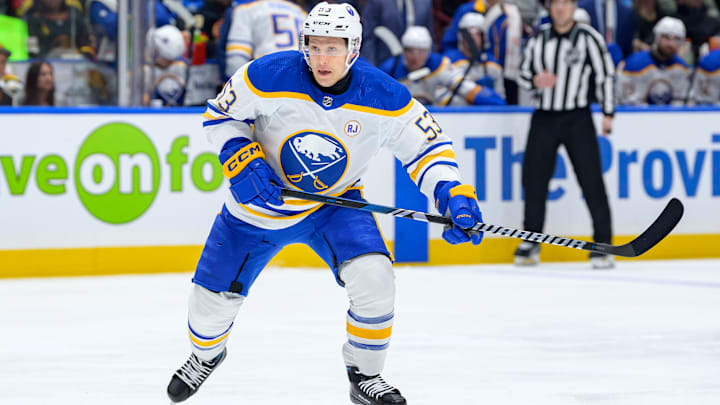The Sabres can’t afford to lose a dynamic power play scorer
If there’s one area the Sabres can’t afford leaving to chance, it’s the power play, and you watched them on the man advantage this past season, you can see why. Over the past two seasons, Skinner scored 16 power play goals and 33 points at 5-on-4. He was also second on the team this past season, next to Tage Thompson, in power play goals with eight.
Blueliner Rasmus Dahlin was the only one who came close to Skinner and Tage on the power play, finding the net six times. Here’s another interesting statistic: While the trio scored 23 power play goals, the rest of the Sabres scored just 14 times. So yeah, trading Skinner before they find someone else to fill what would be a massive void in the scoring realm on the power play isn’t feasible.
Especially if the Sabres struggle through a repeat of last season on the man advantage. It would be worse doing so without Skinner’s presence. This isn’t saying the Sabres wouldn’t get active in the free agent and trade market if they moved a player like Skinner, but doing so at the expense of the power play wouldn’t help this team unless Kevyn Adams had a contingency plan.
(Statistics provided by Hockey-Reference)
